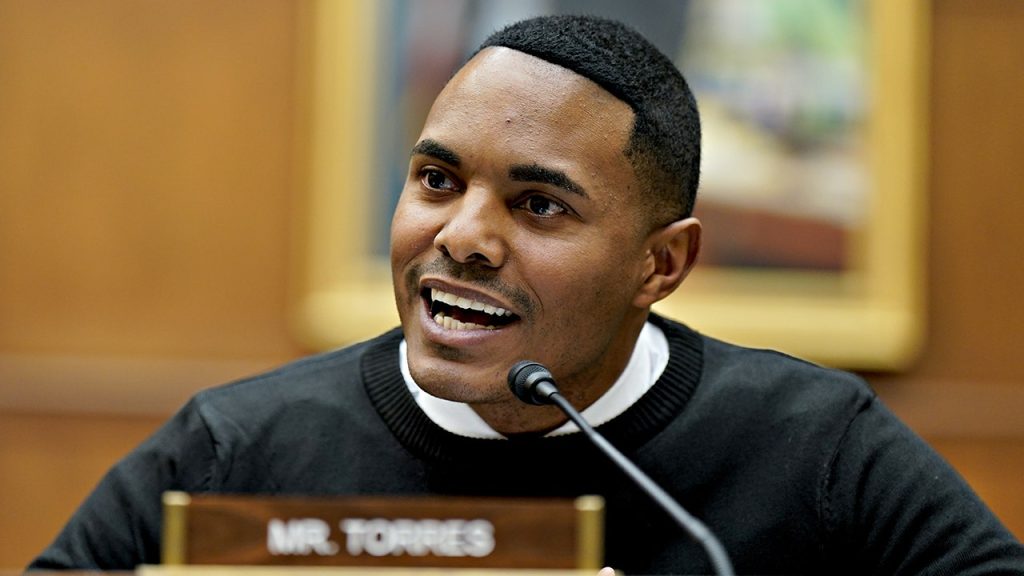Representative Ritchie Torres, a Democratic Congressman from New York, is contemplating a gubernatorial run in 2026, positioning himself as a moderate Democrat willing to challenge the progressive wing of his party and criticize the leadership of Governor Kathy Hochul. His public pronouncements increasingly target what he perceives as the failures of progressive policies in New York, specifically in the areas of criminal justice and economic development. This strategic positioning, coupled with his willingness to publicly rebuke fellow Democrats, suggests a potential primary challenge to Hochul and a desire to carve out a distinct political identity. Torres has garnered national attention for his outspoken critiques, including blaming progressive policies for perceived electoral setbacks and criticizing leaders for their handling of specific incidents, including a stabbing spree and the handling of a staffer accused of removing posters of Israeli hostages.
Torres’ critique of Governor Hochul is multifaceted, ranging from accusations of “coded stereotyping” to criticism of her handling of the state’s affairs. He has directly challenged her understanding of communities of color and her effectiveness as a governor. In addition to Hochul, Torres has also targeted New York City Mayor Eric Adams, highlighting what he perceives as tolerance of antisemitism within the administration. These targeted attacks on prominent Democratic figures suggest a strategy to appeal to a broader electorate concerned about rising crime and economic stagnation, while simultaneously appealing to moderate and conservative Democrats wary of the progressive left’s influence.
Adding further fuel to the speculation of a gubernatorial bid, Torres publicly criticized New York’s business regulations, arguing that they stifle economic growth and hinder development. This criticism aligns with traditional Republican talking points, further solidifying his positioning as a centrist Democrat willing to break with the party line. This strategic positioning not only sets him apart from Hochul and other potential progressive challengers but also potentially attracts support from voters disillusioned with the perceived failures of the current administration. This approach could prove successful in a state where moderate and independent voters often play a decisive role in statewide elections.
Republican Congressman Nick Langworthy, a former chair of the New York State Republican Party, acknowledges the resonance of Torres’ criticisms, noting that they echo many of the concerns Republicans have raised about the state government’s performance. However, he dismisses Torres’ criticism of progressivism as opportunistic posturing in light of Hochul’s perceived weaknesses and Donald Trump’s electoral successes. This Republican perspective suggests that Torres’ criticisms, while valid, are primarily motivated by political expediency rather than genuine ideological conviction. This interpretation reinforces the perception of Torres as a political opportunist, potentially alienating some progressive voters while attracting more moderate or conservative support.
Torres’ departure from the Congressional Progressive Caucus earlier this year, citing disagreements over Israel, further underscores his break from the progressive wing of the Democratic Party. This move signals a clear ideological shift and strengthens the narrative of a moderate Democrat carving a distinct path. While this departure solidifies his position within the moderate wing of the party, it risks alienating progressive voters who view Israel-Palestine relations as a litmus test issue.
Governor Hochul, in response to Torres’ criticisms, has dismissed his comments, suggesting that his focus on a potential gubernatorial bid two years in the future distracts from his current responsibilities as a congressman. This dismissive response suggests that Hochul does not view Torres as a serious threat at this stage, choosing to focus on her own agenda and portraying Torres as preoccupied with political maneuvering. This dynamic sets the stage for a potentially contentious primary battle if Torres decides to challenge Hochul in 2026. The outcome of such a primary would significantly impact the direction of the Democratic Party in New York and potentially influence national politics.


